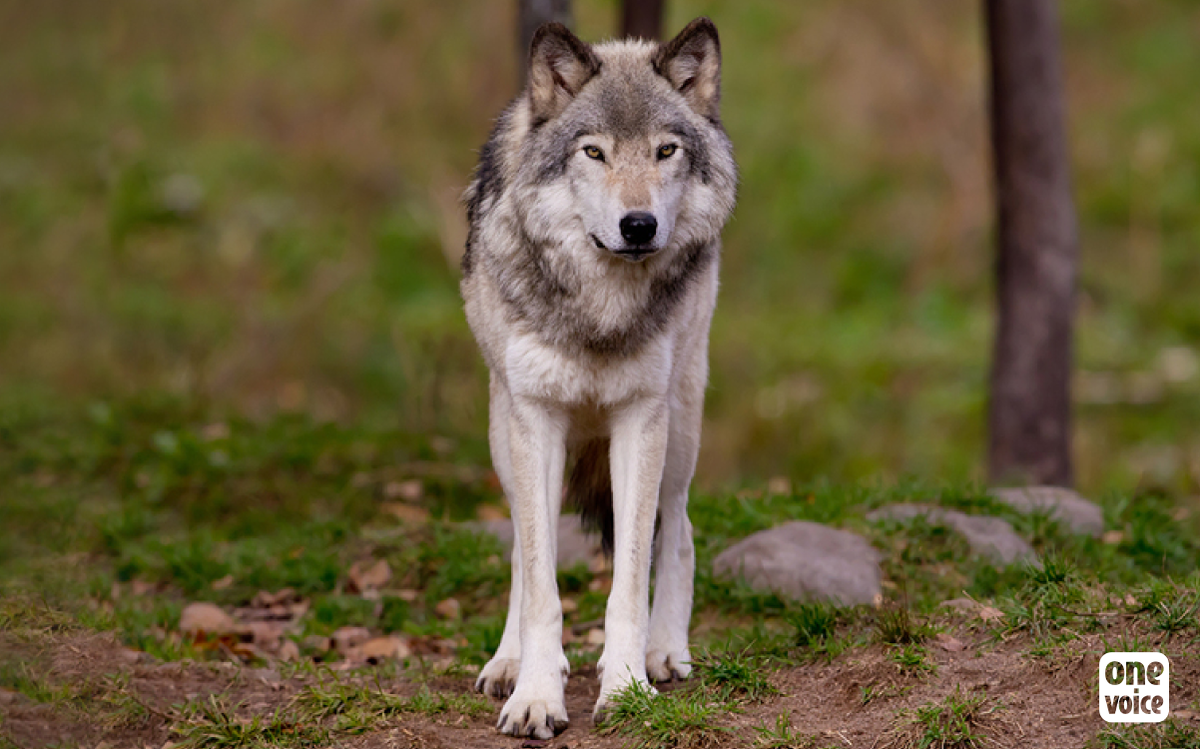

40 legalized killings of wolves: One Voice opposes this
The list of slaughtered wolves continues to grow. 40 is the quota authorized by the government: we are at 19 today. One Voice no longer supports the announcement of all these deaths: stop the massacre of a species already too fragile and put in place solutions respectful of these beings and that of the environment.
The institutionalized death of 40 wolves
Wolf are you there? Can you hear me? Not sure he is still around, if we take the path of the Ministry of Ecological Transition and Solidarity, who authorizes in the decree of July 18th, 2017 the “levy” of 40 wolves without distinction of age or gender within French territory. In other words, the annual measure makes it possible to kill indiscriminately about forty individuals of this species in order not to hinder pastoral activities. 19 have already paid the price, there are only 21 left! But finally, what about the 40 or so of an entire population, will you tell us about this?
Wolves: a species to protect
Many, knowing that 300 is the estimate of the total number of wolves in France and has been so for three years.It’s enough that the species passes the 34% mortality mark to stop its population from growing and to begin a downward trend towards its disappearance. And of course, it is to count these deaths without considering the natural and accidental deaths (accidents of the road) of these magnificent animals. Obviously, protecting them should be a priority, but the government does not see it that way.
An ineffective method to protect herds
The ministry preferred to focus on pastoral activities and this is not the first time. Culling wolves is supposed to reduce the damage caused by these predators on sheep flocks. However, today, no figure allows to affirm that the method is effective. According to the ESCo reports, the impact would even be counterproductive. So even if killing a wolf reduces the size of a pack, it does not diminish its hunting territory. And, as a result of the instability generated by the death of one of their own, wolves live in search of empty spaces and form new groups. The damage caused by them is undeniable, but have we thought of more effective solutions?
Alternatives to unjustified killings
Alternatives exist, but before being implemented, they imply “to consider animals other than interchangeable representatives of a species considered homogeneous”.
To be clearer, it is essential to study wolves not only in packs but also as individuals in their own right. These sentient animals also have an intellectual complexity and a variety of behaviours with their peers. The size of the territories, the survival of the litters, the dispersion rate of the wolves differs from one group to the another. If we took the time to observe them, it would be possible to learn to send them intelligible messages or to carry out a targeted and non-violent sampling of threatening individuals after a rigorous surveillance.
In the short term, proven prevention methods can be used. They consist of setting up guarding and enhanced surveillance of herds, or investing in equipment for restraint pens.
Wolves: benefactors for the benefit of the ecosystem
In the collective imagination, wolves are associated with animals arousing dismay and fear. However, for those who want to take a closer look, these are beautiful animals with a sense of smell 20,000 times greater than ours, defending their family and managing to unify their pack with nothing but their howling! Wolves are an integral part of our ecosystem and help maintain its balance. On the other hand, pastoral activity is far from being beneficial for the ecosystem: it causes the degradation of high-altitude grasslands, and contributes to the impoverishment of the fauna and flora. Not to mention that it perpetuates the exploitation of cattle, sheep and goats …
Stop the slaughter of wolves and find more respectful solutions! But before being able to implement alternatives, One Voice appealed to the State Council to demand right now the cancellation of Article 1 of the decree, namely the slaughter of 40 individuals from July 2017 to June 2018.